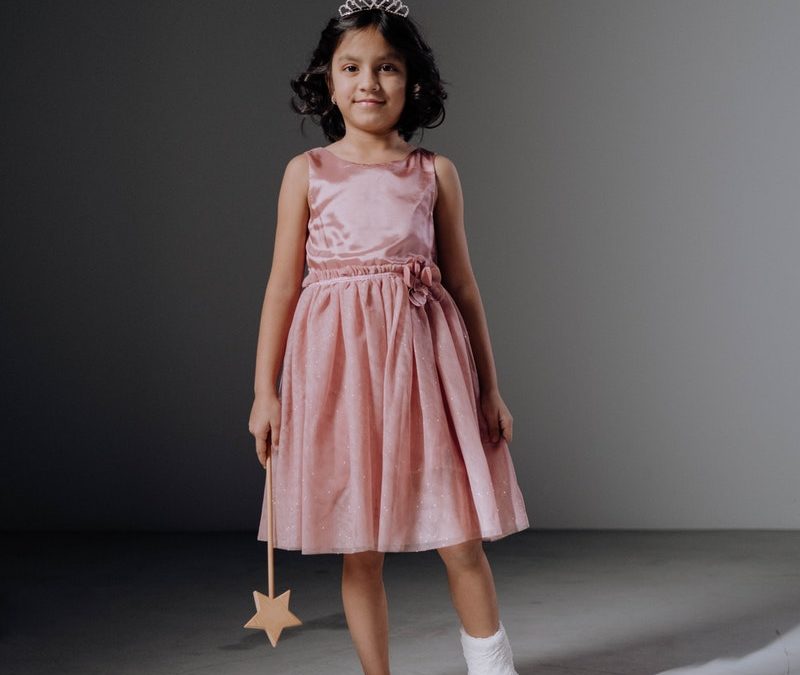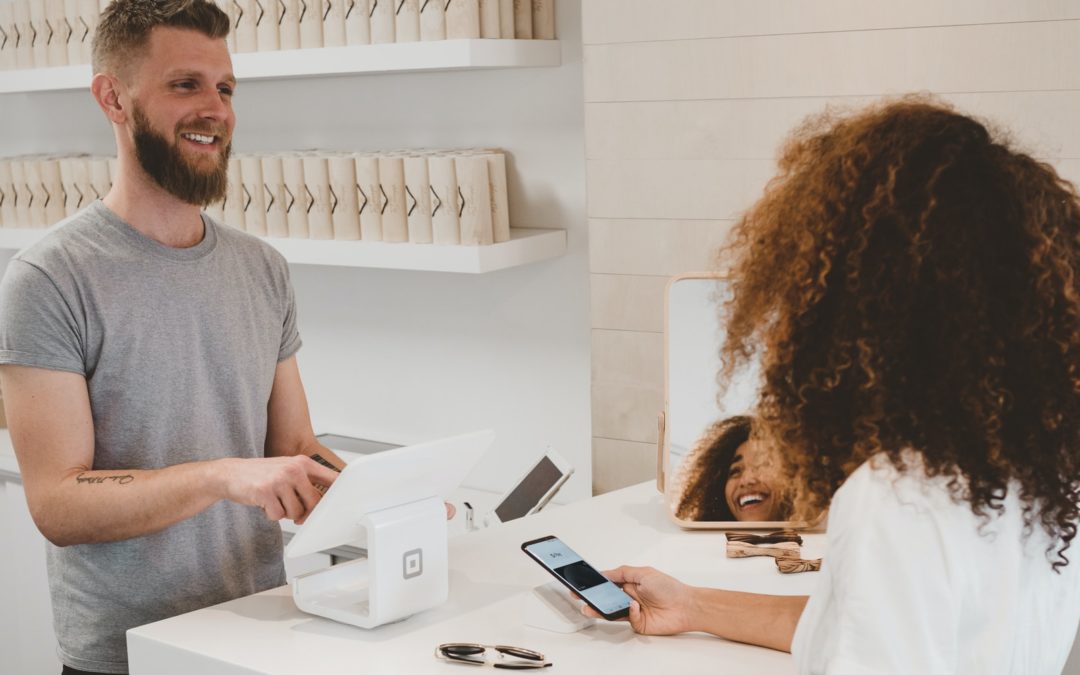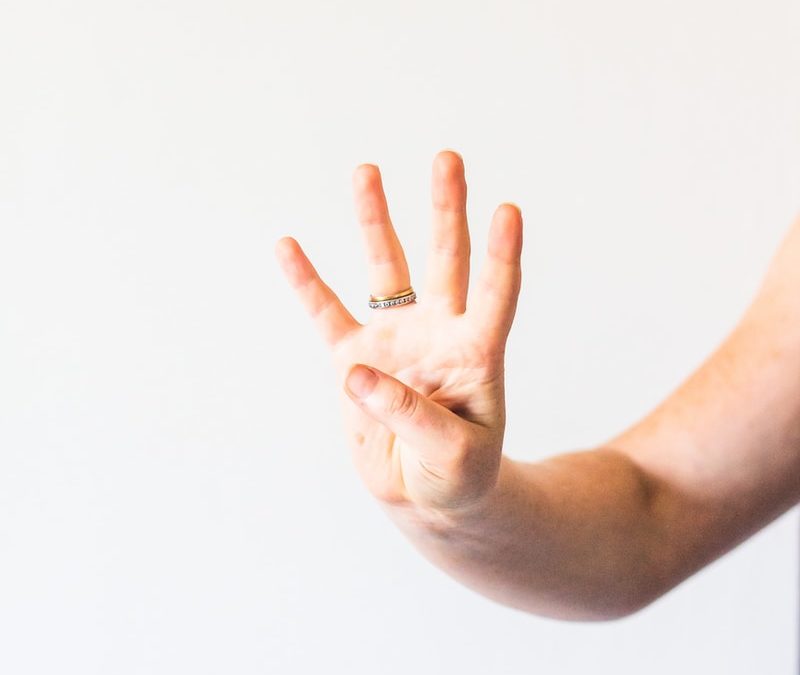
by admin | Dec 30, 2021 | Declutter
We struggle to let go of the very special items in our homes precisely because we first bring them in for a reason. We love them or have given them a cherished value. We saw them as being our link to someone we have loved. Perhaps we received them from a favourite grandparent or a school teacher who was our coach and mentor. Possibly we hold onto that blanket because it was on our Aunt's bed or in a blanket box that our grandmother left to us in her will.
Those vinyl records can't be played on any digital device you own in your apartment, but you hang on to the albums because of what? Your Dad had albums of his own when he was a boy so you bought your own collection of them at a vintage market. It is this magic which we often add to objects that forces us then to continue holding onto them long after any real functional or practical value has passed us by.
We hang onto things because we are people with emotions and feelings and we assign value and meaning to everything we see or come into contact with. We have to do this to stop ourselves getting into total overwhelm or melt down when faced with a thousand and one choices every day.
You see a mahogany box that your uncle stored his love letters in from your aunty before she died and so you give that simple wooden box a value in your mind. You add to it all the memories of riding a bike from your own house as a kid to see your aunty Mabel and uncle Jack. You think of all the ice creams they bought you and some of the presents for your first teenage birthday. All of this heavy emotional baggage attaches itself to the box. Now the box is not simply a 'box'. It has become a store of memory, a reflection of your childhood, a visual link to how you grew up. It is so much more than wood and the pins that hold it together or the varnish that allows it to shine, or the crack in the back where it was once dropped on a pavement when your uncle moved into his care home as an elderly man. It has become a part of you. And you wonder why you find it hard to let go of the things in your life?
Everything has meaning and connection - good or bad - because we give such qualities and meanings to each thing we handle. You have my understanding and my empathy with this difficult process. Your home is a reflection of you and your values. It represents your sense of identity, of who you are to yourself as well as to those whose opinion you take on board. Your house or apartment is a mirror of how you feel about yourself and how you see yourself. The furniture, artwork, decorative style, clothing, photographs on display, all of these are elements of you.
Your Family Souvenirs:
- The piano that had pride of place in your grandmother's living room, but which you cannot play and which takes up so much place.
- The walking stick and row of medals that were your grandfather's.
- The swivel leather chair and footstool that your Dad bought the week of his retirement in a colour you don't really like.
- The pocket watch that was worn by your great grandfather.
- The clutch bag that belonged to your mother.
- The pottery vase or cut glass crystal decanter that you don't use because you choose not to have flowers in the house or to serve drinks in a formal way.
- A photo album from a wedding one hundred years ago and which you know is somehow connected to a relative, but you don't know which one.
- A fountain pen that your Mum had when a school girl and which works fine, but you rarely write letters by hand.
These are sometimes heirloom items which connect us to the larger family network and discarding them creates feelings of disloyalty.
Comfort Objects from Childhood:
- How about the soft toys you had as a youngster or the comfort blanket you had first in your cot and then in your bed?
- A book collection that was relevant to you as a six year old, but you are now twenty seven!
- Printed class photographs from your first year at school.
- A plastic crate of boxed games and toys that you might be keeping handy for your grandchildren, who are not born yet!
- A uniform or handbook from the scout group you were part of when you were ten and eleven, but which was three decades ago.
- A wooden baseball or cricket bat from teenage years when we played well at senior school level, but which is now just gathering dust in the garage.
We don't set out to acquire rooms of stuff that we make little use of. Instead we attribute value to something because of the memory trigger it gives and the feelings it stirs within us. We allow this magical quality to settle on it and we end up struggling to know what to let go of because everything becomes special. All that we choose to keep has a powerful hold over us.
It need not be this way and I want to give you some simple indicators of the magical qualities you have attributed to your stuff. Use this as a helpful guide to determine what you must keep and what you can confidently discard. By doing this you will allow so much lighter, more positive energy into your living space and change the focus of your life. This allows you to feel more free and to live a life on purpose.
Indicators of potential magical value for your objects :
- If it was broken or lost would you be unhappy?
- Are you reluctant to throw it away, even after you have stopped using it?
- If someone took it away would you buy it back regardless of the cost?
- Do you think that it could not be replaced by another of equal function or value?
- Do you refer to it by name or give it a personality within your home?
- Would you struggle to let it go even if someone offered you full market value?

by admin | Dec 29, 2021 | Simple Self Help
Running a business of your own is an activity you can tailor to your available times and resources, perhaps starting with very little. If it matches your own Risk Profile, then start with a small sum of money and do what you can to increase the fund.
Beyond the Compound Interest way of investing your money, look at the simple concept that you invest a basic sum and double it - gaining yourself a 100% return.
The best way to do this is always through learning to Sell Something.
Selling is the simplest of skills to learn at a basic level and you can choose later to get really good at it.
Start by finding something that you like enough to carry with you all the time. When someone expresses interest in it, you say,
"It's for sale. Would you like to buy it?"
I am sure that the reason most people express a fear of selling, is because they can't be comfortable waiting for the silence to be broken after asking this question.
If the person says "Yes", then you have a sale. And you might have doubled your investment.
Do the research and see what you can invest in, for the short-term, the medium or the long term. Again I would recommend that you assess your approach to risk and always work within the boundaries of what is right for you.
The development of a good set of selling skills is a prerequisite to success not just in business but in a lot of personal and social situations too, and as such should not be overlooked as a skill worth acquiring.
Face to face selling can be done at a street food stall if you can cook well. You could buy a collection of household items and sell them at a weekend car boot event. If dealing with the public face to face does not appeal then instead focus on selling via one of the online outlets such as Easy, Ebay or Amazon. You can be up and running within an hour, even after taking pictures of your starting stock. You list the items for a fixed price or for an auction style sale and you then wait to see how your offering is received. The process is simple and your costs are predictable based on the published percentage charge that the web platform applies.
If you want to make things at home and sell them online there are a mass of specific sites where the audience comes and searches for home made, craft or vintage items. Do your research and look around for a selling activity and opportunity you can feel comfortable with. Start simple and set yourself a budget for the first batch of items you will collect or make yourself and list these for sale.

by admin | Dec 16, 2021 | Declutter
As you move through your home and separate what you want to keep from the things that will go you have made good progress. How you let go of what is not staying is best done by splitting these into four easy categories. If it's not staying then you are going to Sell, Donate, Gift or Bin each item. The key to winning at this stage is that you do what it says on each grouping of items. Don't let yourself be distracted.
A word of guidance for the unsure or the weak-hearted. If it doesn't fit into one of those four criteria, you are keeping it and that's OK. You are letting it stay where it is because you love it or it brings such happiness to your life when you see it. I hope that stops the panic for some of you. This is your stuff and you can keep the best of it. You are getting rid of the clutter, the waste, the surplus and the junk. Stay calm and get busy decluttering!
Sell: This can be a task the whole household gets behind and if so, you get to share the rewards from the selling activity. If you want to motivate a teenager, you may have just found a good way forward! Get them involved in listing the items for sale in online platforms. Reward them with seeing the progress made and the additional cash that comes in from the successful sale of items that they list.
A silk tie that cost you $50 new can reach $20 when advertised online. Pictures uploaded from your cell phone and a short description will see it sold within the week, and you have $20 bucks to add to your holiday fund or family treat fund. This two lamp bases that are made from beautifully turned wood are sold for $40 the pair plus postage. The classic shirts or vintage sneakers sell for $10 - $15 per item and you had been hoarding loads like these. You can hold out for slow and steady sales or you take an offer of $400 for the lot. It all goes into the fund.
Bigger items are no good for sending by mail. Use a marketplace listing for the pictures of that polished wood dining table and four chairs, or the spare desk or the two armchairs that have been in your garage for a year. You click and upload the pics, and the next day some buyers come for the separate items and you pocket $60 cash for the table and chairs, $50 for the desk and another $50 for the two big armchairs. That's another $160 for the holiday fund.
Donate: You take the items that end up here, down to the goodwill shop as soon as you have enough to fill a couple of boxes which you can put in the car and deliver to the store next time you are in town. Every card box or black bin bag you fill with lampshades, unwanted clothes, laundered bedsheets and duvet sets, books in good reading condition or jiffy bags of unused pens and pencils, each of these has a value to your local charity. You are taking stagnant energy in the form of the stuff you no longer want and transferring that to a place where it can be sold on and gather new energy in the form of cash money for the cause they promote through their work.
Gift: This is about some of the choicer stuff you come across when rooting around in your garage, attic or den. Perhaps you will find some emotional gold deep within those wardrobes where you haven't looked behind the coats for years! You will inevitably come across things that you have held onto as family heirloom items, and which you have enjoyed having with you over several years. Now might well be a good time to let them have a new home, still within the family.
Before my Dad died he had already given me some of the beautiful things he had treasured. A velvet lined, mahogany box stored his Lewis Men chess set which he had made from resin. My youngest son is the chess player now and so this is marked for him. A folding wooden writing desk from the Officer's Cabin of 1940's troop ship is something Dad bought in his one of his trips hunting for antiques. It is gorgeous, has a secret drawer, the cut glass ink pot, has the original ship's movement document attached and also comes with research into the history of the ship
What have you got that you are happy to let go of, knowing it can have a renewal of life in a fresh setting, where it will be loved and appreciated? It has already served you well and brought you pleasure. You have the memories of it in your life and can take several digital pictures of it before handing it over to the next person who will appreciate it. I think of these as Legacy Treasures or Legacy Gifts.
Other items you have which are simply in good order can be used by others who will be grateful to you for the gift and able to make use of the item. A food processor, a well equipped tool box, an auto jack or tire pump. A mountain bike in good order. Some electrical extension cables. Unwanted surplus furniture. A gift can be anything that you have had good use from and which still has life in it to be of use to another person or household. Let the items go and notice how different your space feels for the new energy it has within it. Write about how you feel as you let these things go into their new life somewhere else.
Bin: This is an easy one. The sooner something moves from the Bin pile to the large waste bins outside your home the better. A good and realistic goal here is that whatever you place in this pile, it does not stay here overnight, but goes outside into the designated private or communal bin areas for your home. The items here can sometimes be split between recycling and rubbish. For example, a broken wooden chair is rubbish, but the material can be recycled by your local authority as they work through waste.

by admin | Dec 2, 2021 | Declutter
You have sat with your head in your hands and worried about the clutter, the chaos and the mess. To say nothing of the overwhelm, stress and constant drain on your energy. Now it's time to begin the process of working through the things you have around you and to actually let some of them go. I feel your pain, really I do.
Grab your journal and take the time to note how you are feeling right now. Limit this to thirty mins or however long it takes you to enjoy a coffee with your pen and notebook!
Be honest about how you feel approaching the project of removing this junk and clutter from your home. If you are scared then write about this to yourself. What is most worrying for you? Are there some aspects making you feel nervous or jittery? Stick with a pre chosen time limit for the journalling activity and use this to get your thoughts and feelings down on paper. We don't want you to be so absorbed in your notes that you never get around to the work of discarding!
Picture your starting point. After journalling about the emotional place you are in as you begin the declutter, I am going to ask you to do one thing that will take just minutes out of your day, but which will have a powerful benefit. Grab your cell phone and take pictures of every single room in the house. Stand at each doorway and take a picture of the room in front of you. Then go to an opposite side or corner of the room and take some other pictures looking back towards the doorway. As you build your photo album of the room, make sure you have an image of each area captured and stored on your phone. Do this with your living area, dining space, sleeping area. But also do the bathrooms and the kitchen. Take photos of your kitchen with every cupboard open. Take a picture of that random dumping ground under the sink. Open your bathroom cabinets and capture an image of the contents. I dare you!
If you have a garage or a basement where you store your 'stuff', make sure to gather images of each of these areas so you are fully aware of what you are dealing with. For many people this is a harrowing process because it gives you the evidence of how out of control you have become with the operation of your home as a space where you gather, hoard, store and accumulate quite so much. I promise you though, that some time from now you will look at the before and after pictures and feel such a sense of pride and accomplishment, you will be wanting to show everyone the results you have achieved and the completely different space you have created through your own effort, dedication and focus.
With the picture album recorded, you can now start with a section of your home that you can manage to deal with in one go. Here I don't mean a whole room though. You need to be realistic and also kind to yourself. You want an early win so that you will come back and do more. This can be a drawer in a desk, a shelf in your living room or that area under the sink in your kitchen. This victory will give you the motivation to stay with the process tomorrow and the next day.
As you prepare to declutter your home of the items that no longer serve you, take the time to get mentally ready for the emotional effort this will require from you. In letting go of things which have been in your home for months and often for several years, or which have been moved from house to house and never used, it is up to you to be able to look at each item and decide on why you are going to keep it or whether you will move through the process of releasing it from your care.

by admin | Dec 1, 2021 | Simple Self Help
As you develop the powerful habits of spending less than you earn, of accumulating savings, and earning interest on those savings, then you might consider taking a small percentage investment in a Business or venture of some sort. Investing in other companies can be difficult if they are really small, because so much depends upon the character and determination of the founder or owner of the business.
With a small business investment you can be very vulnerable to making a mistake, seduced by the money or the possibility of a quick profit. Too often the entrepreneurial energy can attract the interest of investors who seek a fast result and in doing so people can drop their guard and forge or overlook the need for a little investigation or due diligence.
If you are considering investing in a small business then it might well be one that you start and run yourself, getting the tax benefits that come with business ownership of your own venture. Give this a lot of thought. If it doesn't grab you and hold your interest, then stay away from owning a small business and simply consider the investment route as being potentially better for your lifestyle and character. If this is not right for you then consider looking around a broad search of the opportunities in other more established businesses such that you can find one that could be a good home for a portion of the savings you have accumulated for yourself.
If the idea of a business of your own is simply too much to contemplate - either because it is such a new concept or even possibly because it is too frightening - then from the portion of your savings placed instead into Stocks and Bonds you are likely to get at least a slightly safer return on your money.
You have the benefit that you can maintain an interest in public companies through the internet and the newspapers, following the stories behind each company and the industries they are active in. This way you get to develop investment behavior as an interesting hobby and one where the day to day aspects of your money are handled by those who do this all day long and who will give you a reasonable return without the hassle or angst of you needing to get involved.
Looking beyond equities and stocks I have personally always preferred the long-term holding of Residential Property. For myself that has been an easy decision because people always need somewhere to live and for many years now we have supplied good homes for them to rent. Buying property need not be a complicated process and there are plenty of great online and printed materials for you to develop your skills in this sector. Just like Stocks and Shares you can let someone else do the letting and managing of your property for you, or you can choose instead to upgrade your skills and manage the place yourself. You can also drive past the property and check it is still there whenever you want to!
A further route I would like to go back to is the combining of some of the above approaches, but with a small or part-time venture of your own. You can choose to intentionally design your new business working from home, online, part-time or full-time, according to the results you want to create.




